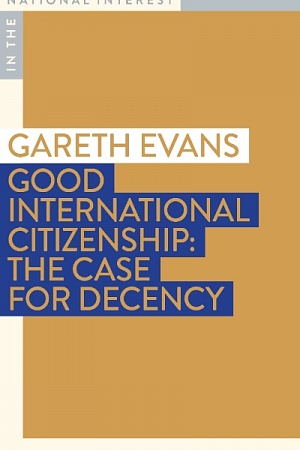Inaugural ABR/Flinders University Annual Lecture
If we cannot end now our differences, at least we can make the world safe for diversity.
President John F. Kennedy, Address to the American University, Washington DC, 10 June 1963
In March 1966 the first students arrived at Flinders University. They were typical of their time. Men outnumbered women two to one. Most lived at home with their parents, their background overwhelmingly middle class. A survey in the first years of the new institution confirmed that Flinders students were not politically radical. A slim majority indicated support for the government of Harold Holt. Only a handful opposed American and Australian involvement in Vietnam. If conservative about political change, Flinders students did not forgo commencement day pranks, with a mock Russian submarine being pushed into the university lake. Four decades ago, most students starting at Flinders were destined for teaching or the public service.
Though Flinders students were much like Australian tertiary students elsewhere, their new university was anything but typical. As founding vice-chancellor Peter Karmel told a meeting at the Adelaide Town Hall, ‘we want to experiment and experiment bravely’. Out went faculties and departments, replaced by Schools of Social Science, Biological Science, Physical Science, and Language and Literature. Students, it was hoped, would cross disciplines, in a university committed to a coherent intellectual and social experience. Even when the university began to teach medicine in 1975, the course was designed so that students would take majors in other faculties. Many chose the humanities and social sciences.
Innovation extended from subject matter to teaching method. The School of Language and Literature introduced the then novel practice of continuous assessment, with teaching delivered through now unimaginable tutorials of just three or four students. Flinders students could take Australia’s first undergraduate course in Spanish, along with other subjects not offered at the University of Adelaide.
Continue reading for only $10 per month. Subscribe and gain full access to Australian Book Review. Already a subscriber? Sign in. If you need assistance, feel free to contact us.















Leave a comment
If you are an ABR subscriber, you will need to sign in to post a comment.
If you have forgotten your sign in details, or if you receive an error message when trying to submit your comment, please email your comment (and the name of the article to which it relates) to ABR Comments. We will review your comment and, subject to approval, we will post it under your name.
Please note that all comments must be approved by ABR and comply with our Terms & Conditions.